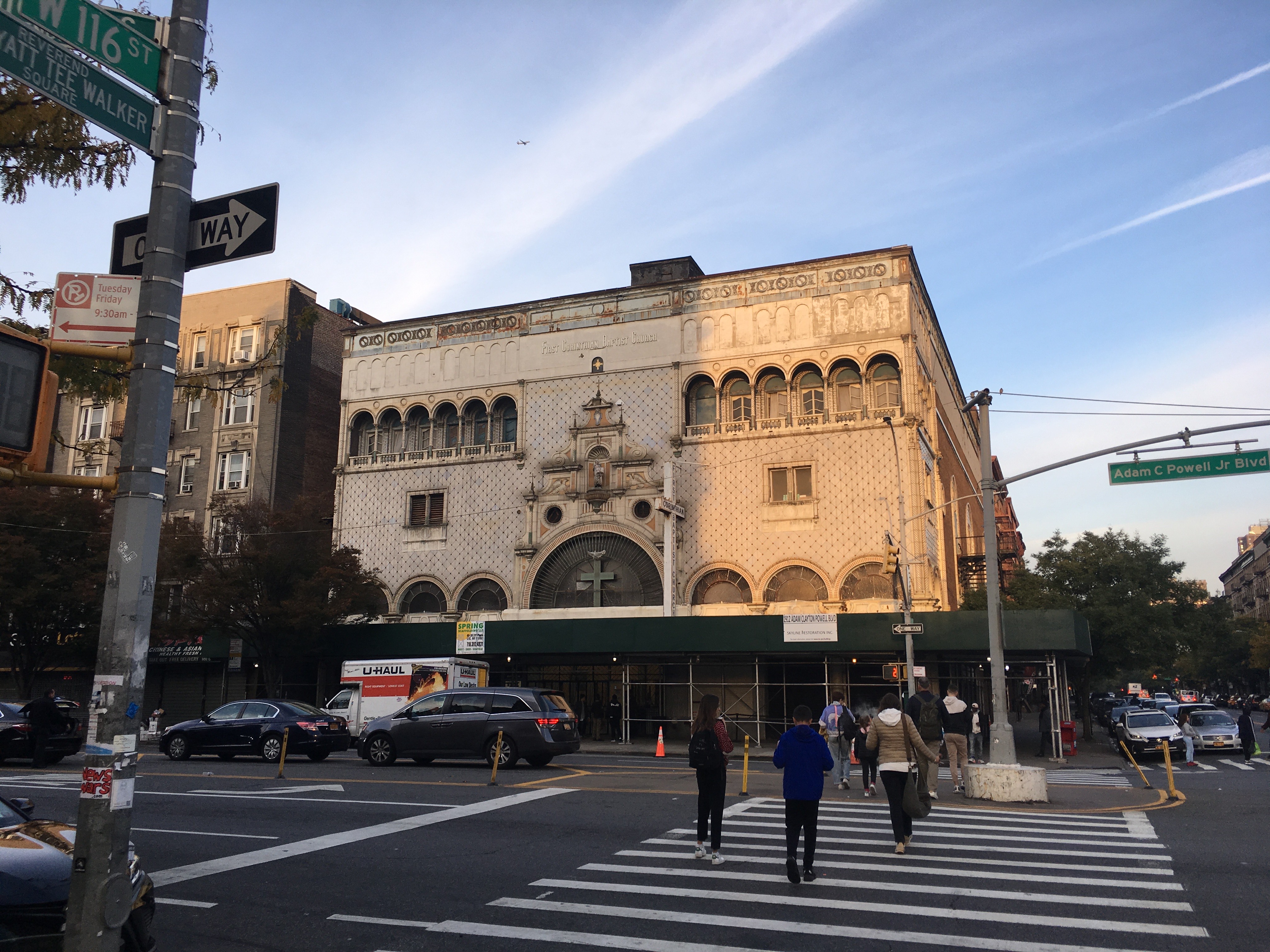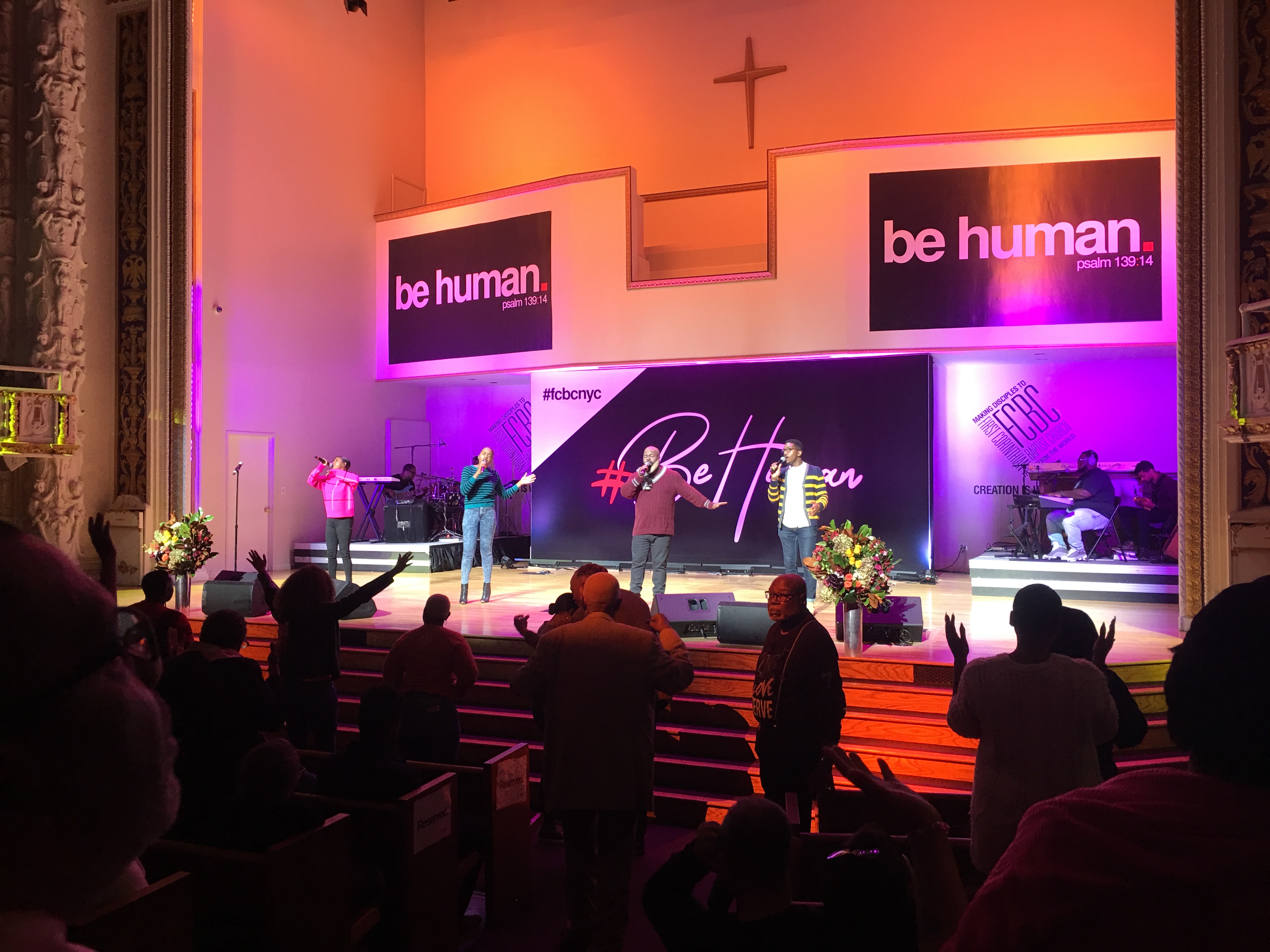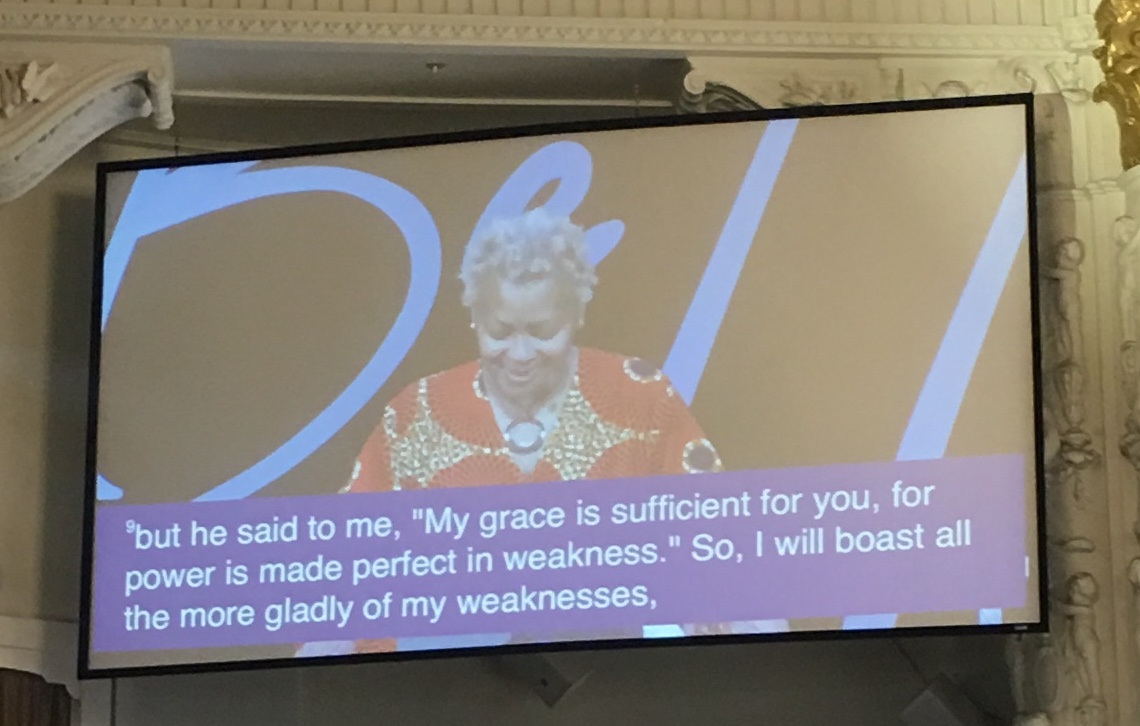
In October 2019, I was staying in a hotel in New York and decided that I wanted to visit Harlem. More than that, what I really wanted was to experience a service in a Baptist Church. This was something I’d only seen in films and on television, something I realised I wanted to experience by being there in person, by taking part.
0930 on Sunday morning I got off the subway and walked up a broad vein of Harlem towards the First Corinthian Baptist Church for the 1000 service. I found the place, found my way in and found my way to a seat, all the time thinking the thought that generally precedes all significant experiences that I ever have. I was consumed with doubt, subsumed by a feeling of wanting to retrace my steps and was all layered over with discomfort as to what would happen next.
I needn’t have feared. The locals were friendly and made the effort to welcome me. I realised the only people not doing so were the other visitors like myself. It didn’t take long before we took the cue and said hi to each other. We’d all come far. Before long we had to stop, as the service we were there for was starting.

I remember a lot of singing and rejoicing and had a great time but the service remains in my mind for one preacher in particular who that day had decided to talk about vulnerability. What the Rev. LaKeesha Walrond said about it changed me. Her message was that the word “vulnerability” itself was misunderstood. Like so many words in our language, it had acquired a negative connotation when the truth was anything but.

Rev Walrond explained that the true meaning of vulnerability was our openness to being wounded. The metaphor she used was a knight of old on a horse who took a sword wound to the leg. That wound could then heal. That knight survived the encounter but had a vulnerability that led to a process, both of healing but also an opportunity to learn and grow stronger from the experience.
The preacher told us that what mattered was our being open to the possibility of being wounded. To be vulnerable really meant to be open. To be open to change and to learning, we had to expose a part of ourselves that was capable of being hurt, to the world. The alternative was to shield ourselves from any such exposure, to be closed to the possibility of being hurt and shut off from the process of change.

She ended by quoting 2 Corinthians “..but he said to me “My grace is sufficient for you, for my power is made perfect in weakness.” So, I will boast all the more gladly of my weaknesses”
It took a trip to Harlem but I now understood the power of vulnerability a lot better.
It was about being open to the possibility of being wounded.
